Crisis after crisis: How WFP helped Lebanon respond to 2020
Lebanon—where WFP has had a presence since 2012—has suffered multiple shocks over the past 12 months. These have had a devastating effect on its people. Compounding socio-economic and political woes, the country's health system is under severe pressure with the impact of COVID-19. On 4 August, the Beirut port blast increased the number of families sinking into poverty, with the more affluent sharing the plight of already vulnerable communities.
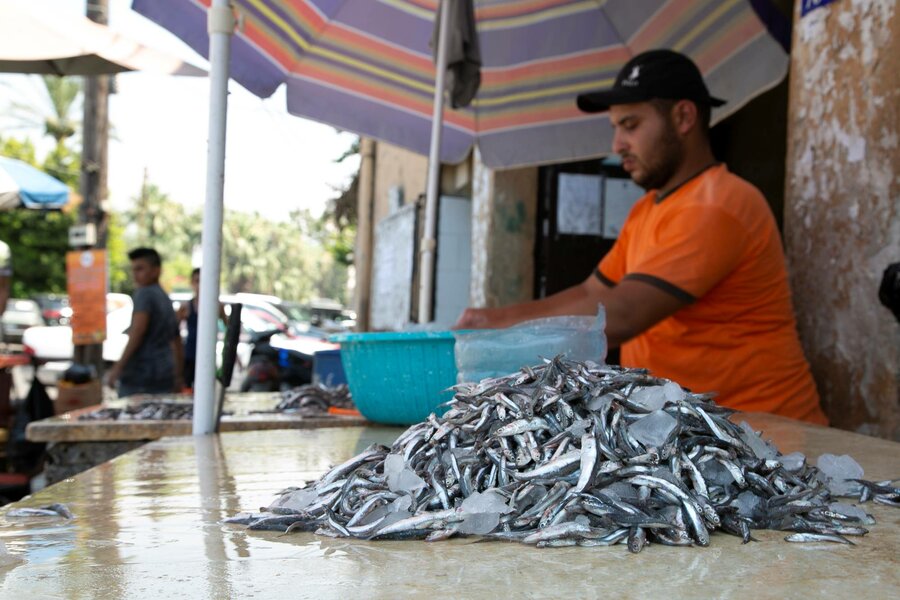
Food prices have nearly tripled over the past 12 months. At the same time, the Lebanese pound had lost around 80 percent of its value since October 2019. This has had a huge impact on the import-dependent country’s economy. People's purchasing power, the value of their savings and salaries have been affected too.
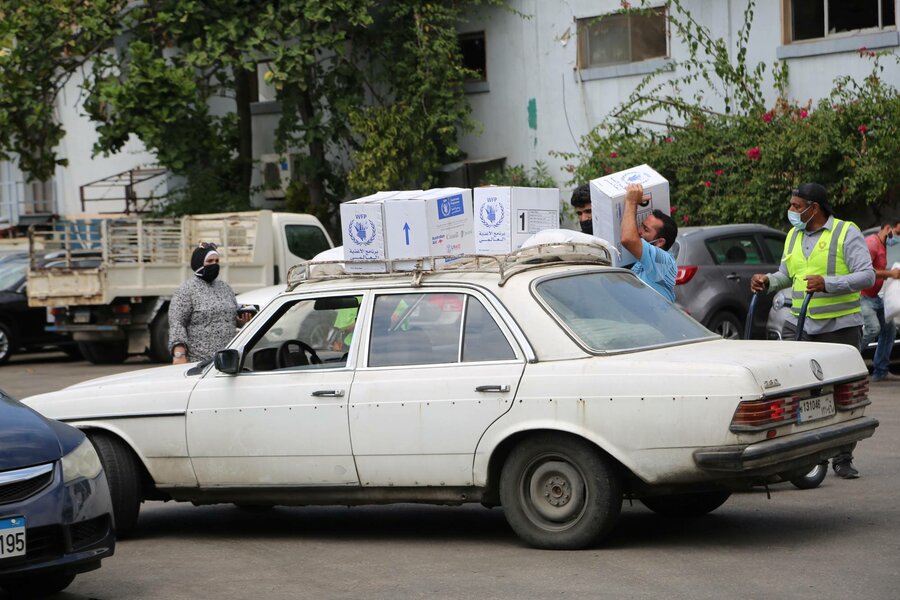
A recent WFP survey estimates that one in three Lebanese were pushed into unemployment, while nearly a fifth of the population saw their salaries reduced. This pushed 85 percent of families to buy cheaper foods of poor nutritional value. Half of the families surveyed said they were limiting meal portions.
Excluding refugees, the World Bank estimates 1.7 million Lebanese are currently poor, almost half the country’s population.
Local partners and NGOs also received WFP food parcels to support kitchens providing more than 3,000 hot meals per day to affected families and volunteers cleaning up the neighbourhoods.
“I’ve said that I will stop the kitchen and food distribution many times, but then something happens—a donation comes in, and I find myself coming back,” says Cyril Badaoui, founder of A+ Initiatives, one of the non-profit organization that’s received WFP food parcels. His organization teamed up with a catering business to deliver hot meals to people’s homes.
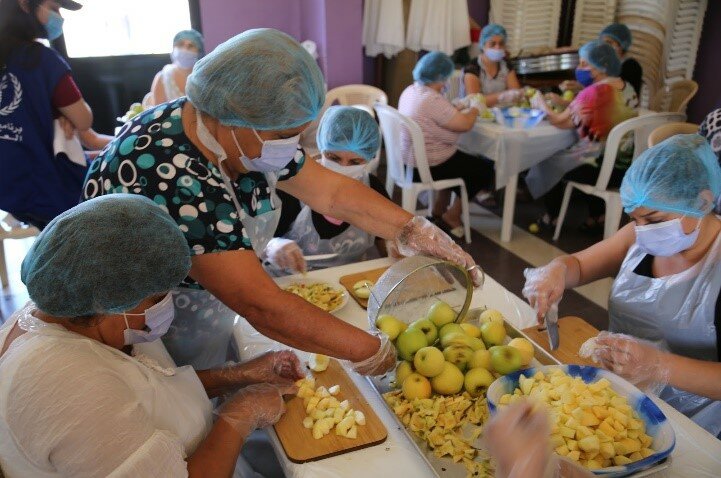
Two weeks after the Beirut blast, WFP brought in 12,500 metric tons of wheat flour to support food security in Lebanon. In an agreement with the Ministry of Economy and Trade, this wheat flour served to increase the weight of the standard bag of bread from 900 grams to 1,000 grams. This meant all Lebanese families got two extra loaves in the staple bag of pitta bread for the same price for two months.
(WFP conducted 471 shop visits to monitor the weight of bread across the country, making sure bakeries were selling bread bags at the adjusted weight.)

Lebanon’s health sector was already burdened with the untameable spread of COVID-19. As the devastating Beirut blast hit, the number of hospital beds was reduced by almost 550.
As hospital patients were transferred to nearby centres for treatment, participants in a WFP livelihood project volunteered in recovery efforts at the Rosaire Hospital in Gemmayzeh, less than 1 km away from the blast site.
Two weeks later, the hospital’s emergency department started again receiving cancer patients for treatment.
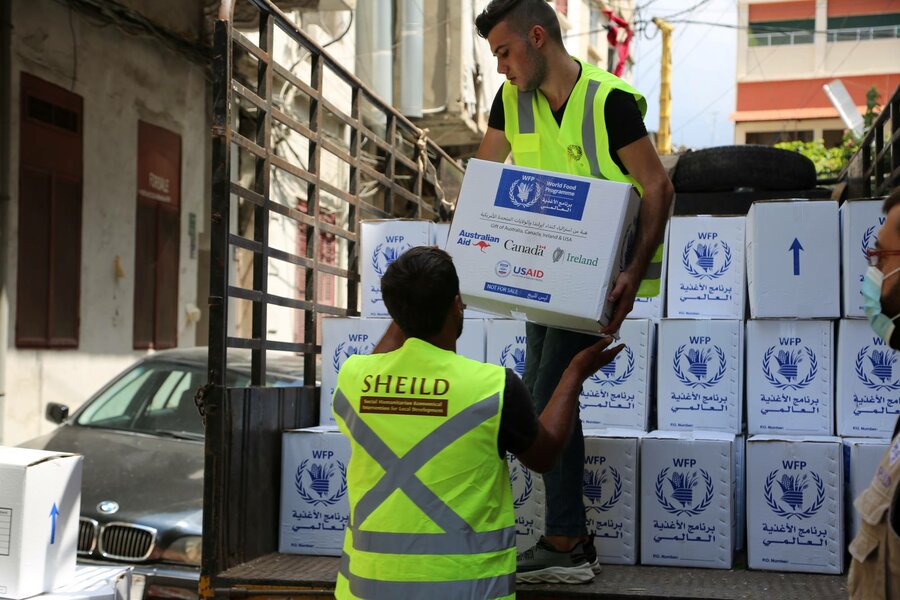
WFP supports vulnerable individuals affected by Lebanon’s current socio-economic crisis, Beirut blast and coronavirus lockdown measures. Participants acquire skills to get an create an income or increase their meagre incomes.
As the situation in Lebanon worsens, WFP is rapidly expanding its support to vulnerable Lebanese, now reaching 270,000 people across the country. While some receive food parcels, the majority get cash transfers they can spend on food in contracted shops.
In November, for the third time in 2020, to address the impact of rampant inflation in Lebanon, WFP more than doubled the value of the food assistance it provides via e-cards.
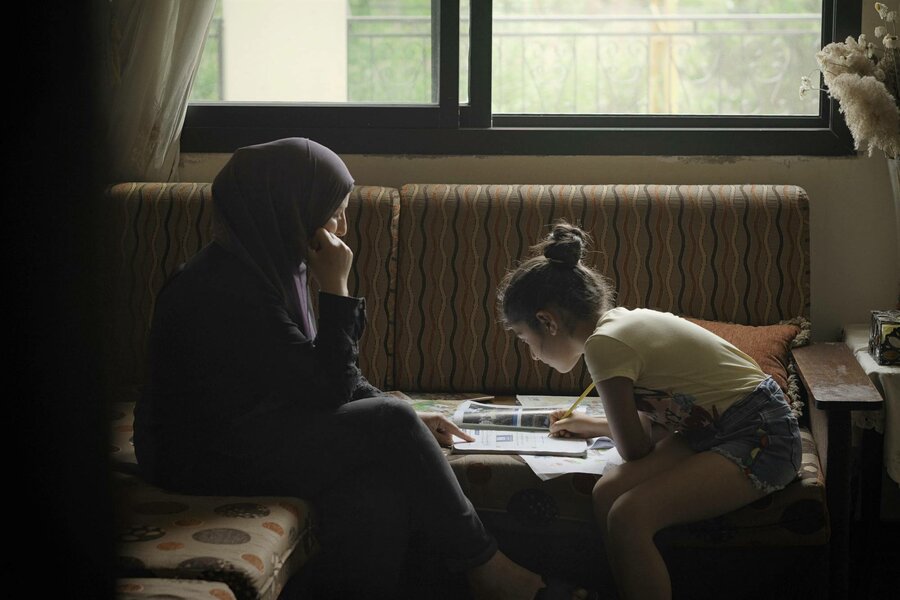
As schools across the country were suspended again during the 2020-21 school year to control the spread of COVID-19, WFP is providing alternative assistance for vulnerable children benefiting from the programme. In December, WFP began distributing food parcels for families whose children would otherwise be having a proper meal at school had they stayed open.
In response to the deteriorating situation in Lebanon, WFP expanded its school feeding programme for the 2020-21 academic year reaching 50,000 students in 81 schools in total – an increase by about 20,000 children compared to last year.
“When families have less money for food and other necessities, they resort to negative coping mechanisms and one of them is sending children to work,” says Abdallah Al-Wardat, WFP Country Director and Representative for Lebanon. “By adapting our school feeding in this manner we are freeing up a family’s limited resources so they could spend it on healthcare, rent or other necessities.”
WFP provides assistance to more than 1 million people across Lebanon – that includes both Lebanese nationals and Syrian refugees: that's one in six people. This has been made possible thanks to generous support from Australia, Canada, France, Germany, Italy, Norway, Private Donors, Switzerland, United Kingdom, USA, EU MADAD, ECHO, Ireland and Denmark.



